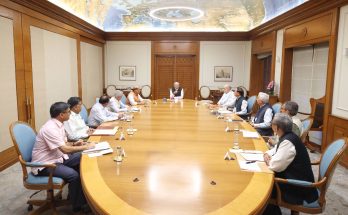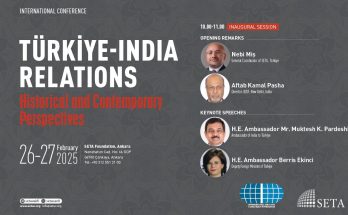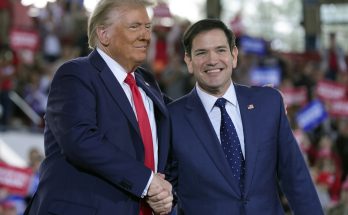
DAVOS: With occasional references to Sanskrit shlokas, Prime Minister Narendra Modi renewed the global spotlight on a ‘New India’ shaping under his watch in front of the global elite in the Swiss resort of Davos and underlined his commitment to globalisation amid growing walls of protectionism.
In his keynote speech at the plenary session of the World Economic Forum, the Indian leader upheld a ‘New India’s’ unique role in guiding the world through its ancient liberal values and unique democratic experiment. Weaving India’s growth story with its spiritual ethos, Mr Modi welcomed the world to partake in India’s robust growth and the opportunities and solutions that it has to offer.
Assuming the mantle of globalisation, a role Chinese President Xi Jinping claimed to don in his speech at Davos amid US’ insular turn under the Trump presidency, Mr Modi said that while protectionism and trade barriers were rising, India was marching confidently towards a $5 trillion economy by 2025.
A world of multiple fractures
Speaking on the theme of “Creating a Shared Future in a Fractured World”, Mr Modi highlighted three levels of fractures- individual, national and international- that have presented the world with a host of challenges to grapple with. At the individual level, the prime minister drew attention to the lack of vision in a world that is more connected than ever by social media. Yet it is simply connection and not integration which is reflected in the discord among interest groups and communities. The inequalities that exist in nations today have converted patience to passions which are threatening to dismantle the foundations of harmony. Most importantly, at the international level he pointed out terrorism and climate change to be the immediate threats.
India’s response
The solution to all these fractures, according to Mr Modi, lies in India’s ancient belief in the concept of ‘wholeness’, or the unity of the universe and all its creations. Citing the example of a swift move towards a cashless society, a unified, transparent and stable tax regime under the GST and greater digitization, the prime minister proudly proclaimed India to be a “dynamic and decisive democracy”.
Regarding terrorism, Mr Modi highlighted India’s pluralist tradition and the principle of non-violence as effective checks on radicalization.Amid the US withdrawal from the Paris accord, Mr Modi reiterated India’s commitment to the transition to renewable energy by setting a target of producing 175 GW by 2022. He announced India’s plan to hold the first International Solar Alliance summit in Delhi in March.
While technological advancement is transforming the world, the prime minister pointed also out that the need of the hour is to “create new jobs in newer areas and manners”.

Five pillars
Mr Modi outlined the five pillars of India’s development agenda, which includes structural reforms, e-governance, physical infrastructure, policy integration and an inclusive economic development. Alluding to major policy decisions taken by his government like greater liberalization through FDI reforms, demonetization, reduction of fiscal deficit and banking reforms, Mr Modi also acknowledged the role of the states in strengthening the base of India’s “competitive federalism”.
Underlining the “revolutionary effect” that will be unleashed if India’s consumption power comes close to the world average, Mr Modi said: “India gives a great scope and opportunity to all kinds of ideas and concepts to flourish and investments to fructify. Our Government agencies are finding innovative ways to create a business-friendly environment. We have now developed the digestive capacity for various technologies. Our young people have already distinguished themselves in the realm of technology, innovation and entrepreneurship. And we are benefitting from their experience at home also”.
He concluded his speech with an open invitation to the world, promising India’s offer of a “shared vision, healing hearts and caring community”.
Author Profile
- India Writes Network (www.indiawrites.org) is an emerging think tank and a media-publishing company focused on international affairs & the India Story. Centre for Global India Insights is the research arm of India Writes Network. To subscribe to India and the World, write to editor@indiawrites.org. A venture of TGII Media Private Limited, a leading media, publishing and consultancy company, IWN has carved a niche for balanced and exhaustive reporting and analysis of international affairs. Eminent personalities, politicians, diplomats, authors, strategy gurus and news-makers have contributed to India Writes Network, as also “India and the World,” a magazine focused on global affairs.
Latest entries
 India and the WorldApril 23, 2025Kashmir terror: India hits back at Pakistan, highlights cross-border linkages
India and the WorldApril 23, 2025Kashmir terror: India hits back at Pakistan, highlights cross-border linkages India and the WorldApril 23, 2025The Century of America and India: Growing Together
India and the WorldApril 23, 2025The Century of America and India: Growing Together In ConversationApril 20, 2025India Can Contribute Largely to Development of Morocco’s Defence Industry: Ambassador
In ConversationApril 20, 2025India Can Contribute Largely to Development of Morocco’s Defence Industry: Ambassador India and the WorldApril 2, 2025Mapping Next Steps for BIMSTEC
India and the WorldApril 2, 2025Mapping Next Steps for BIMSTEC







